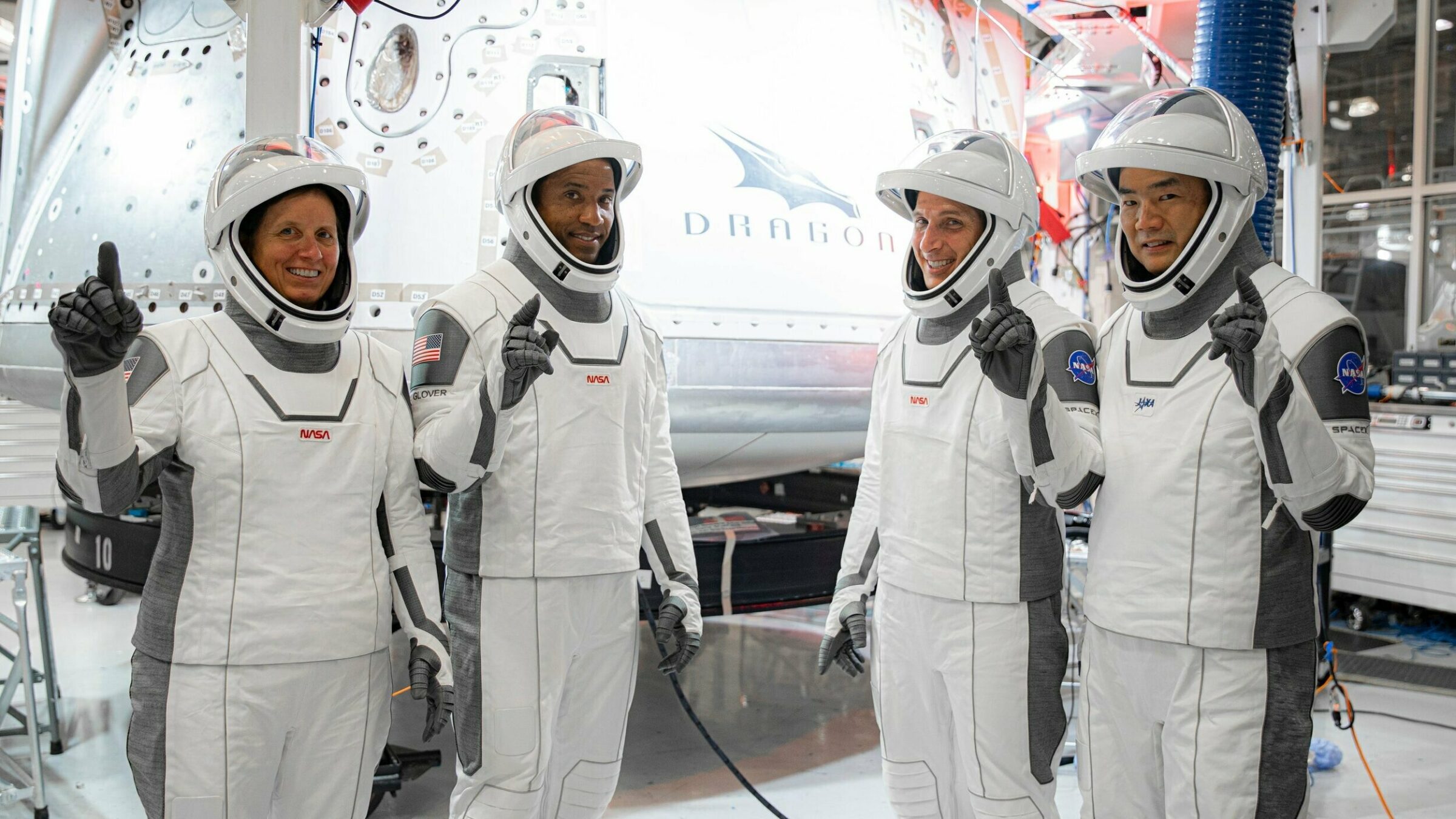Jason Davis • Nov 12, 2020
Your Guide to Crew-1, SpaceX’s Second Astronaut Flight
Facts worth sharing
- SpaceX’s Crew Dragon successfully launched four astronauts to the International Space Station on 15 November 2020.
- The Crew-1 mission marks the start of regular astronaut flights by SpaceX to the International Space Station, following a successful crewed test flight in mid-2020.
- NASA astronauts Shannon Walker, Victor Glover, and Mike Hopkins, and Japan Aerospace Exploration Agency astronaut Soichi Noguchi will remain aboard the station for about 6 months.
What happened and why it mattered
In mid-2020, NASA astronauts Bob Behnken and Doug Hurley made history by becoming the first astronauts to ride a commercially operated spacecraft to the International Space Station and back. The mission ended a 9-year drought for crewed U.S. orbital spaceflight.
Behnken and Hurley’s 2-month test mission demonstrated that SpaceX’s Crew Dragon vehicle was ready for long-duration crew rotation flights as part of NASA's Commercial Crew Program. The first such flight, Crew-1, launched 4 astronauts to the station: NASA astronauts Shannon Walker, Victor Glover, and Mike Hopkins, and Japan Aerospace Exploration Agency astronaut Soichi Noguchi. The crew will stay aboard for 6 months.
The four fliers joined NASA’s Kate Rubins and Russian astronauts Sergey Ryzhikov and Sergey Kud-Sverchkov, who arrived at the station aboard a Soyuz spacecraft in October. This maxed out the station’s crew complement at 7, which was previously not possible since the Russian Soyuz spacecraft can only carry 3 people at a time.
More crew members means NASA and its international partners can better utilize the ISS. Astronauts aboard the station conduct research that helps us learn about the effects of long-term spaceflight on the human body, and test technologies that will be needed for human exploration missions beyond low-Earth orbit.

Meet the crew
Hopkins is a 51-year-old Air Force colonel from Missouri who served as Crew Dragon’s commander. This is his second spaceflight. He flew aboard a Soyuz for a long-duration ISS stay in 2013.
Glover served as Crew Dragon pilot on what was his first spaceflight. The 44-year-old Navy commander began his astronaut training in 2013. He was born in California.
Walker is a space physicist from Texas who served as a Crew Dragon mission specialist. This was the 55-year-old’s second flight. She flew aboard a Russian Soyuz to the ISS in 2010 for a long-duration mission.
Noguchi, a 55-year-old aeronautical engineer born in Yokohama, Japan, served as a Crew Dragon mission specialist. He was the most experienced crewmember, having flown aboard Space Shuttle Discovery in 2005 and the Soyuz for an ISS visit that began in 2009 and ended in 2010.

Get involved
The launch is over, but you can still invite others to join in the excitement of space exploration. Space missions are dependent upon sustained public enthusiasm from people like you. You know your audience best; we've got tools to help. Here are our suggestions:
Tell the world:
- Spread the Facts Worth Sharing at the top of this article on social media
- Send this page to others using the short URL planetary.org/crew-1
- Brush up on the below resources and use them to educate others
Learn more:
- Why do we need NASA when we have SpaceX?
- Get the backstory on NASA’s Commercial Crew program and why it matters
- Learn about the International Space Station and how it prepares humans for deep space exploration
- Stay up to date on this and other missions by signing up for The Downlink, our weekly newsletter
- Read The Planetary Society's principles for human spaceflight
Support our core enterprises
Your support powers our mission to explore worlds, find life, and defend Earth. You make all the difference when you make a gift. Give today!
Donate

 Explore Worlds
Explore Worlds Find Life
Find Life Defend Earth
Defend Earth

